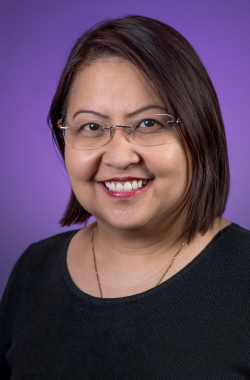Nutrition importance for aging and older adults | Touro Infirmary
- Category: News
- Posted On:
- Written By: Vernilyn N. Juan, MD

Poor nutrition means not getting enough nutrients from food to keep you healthy. This can cause many kinds of health problems. Poor nutrition can make you lose muscle, feel tired and weak, and make it harder for your body to fight infection and heal wounds. You may have trouble with daily tasks and even lose mobility. Working with your healthcare provider to make sure you get enough nutrients can help you be healthier and maintain a good quality of life.
What nutrients do you need?
Nutrients you need from food to keep you healthy include:
- Protein. Protein can help build muscle and prevent infections. It’s found in meats, fish, eggs, tofu, cheese, milk, nuts, and beans. This is the most common nutrient that older adults don’t get enough of.
- Carbohydrates. These help give you energy and have fiber for better digestion. Carbohydrates are found in grains, fruits, beans, and other legumes.
- Fats. Healthy fats help your organs, skin, hair, and brain. They also help your body absorb certain vitamins.
- Vitamins. These include vitamins C, D, B-6, B-12, folate, and others. These help your body repair tissues, use energy, and do many other processes.
- Minerals. These include iron, magnesium, calcium, zinc, and others. These help with many things, such as making sure your cells have enough oxygen, your nervous system works well, and your bones stay strong.
What can cause poor nutrition?
Older adults may have nutrition problems due to eating less food, not eating enough variety of foods, or not absorbing enough nutrients from food.
You may be eating less because of:
- Not being hungry very often
- Feeling full too quickly
- Feeling full for a long time
Appetite for food can change because of:
- Changes in hormones that control or affect hunger
- Less ability to smell and taste
- Lack of physical activity
- Slowed digestion
- Stress
- Depression
- Medicine that causes low appetite
- Cancer and cancer treatment
- Dementia
- Alcoholism
- Parkinson disease
Or you may be eating less, or less variety of foods, because of:
- Teeth or denture problems that make biting and chewing difficult
- Trouble swallowing (dysphagia)
- Trouble using your arms, hands, or fingers because of pain, stiffness, or tremor
- Stomach acid reflux
- Being less able to go grocery shopping
- Being less able to cook and prepare food
- Lack of interest in cooking
- Living alone and eating most meals alone
- Being in a housing facility where you don’t like the food
You may have problems that cause your body to not absorb enough nutrients. This can be from:
- Diarrhea
- Constipation
- Vomiting
- Nausea
- Gastritis
Problems from poor nutrition
Older adults who don’t have good nutrition can have problems such as:
- Unplanned weight loss
- Loss of muscle
- Less strength
- Feeling tired and weak
- Trouble with balance and walking
- Trouble thinking and remembering
- Trouble with bathing, dressing, and other daily tasks
- Weakened bones
- Wounds that are slow to heal
- Gum problems and tooth loss
- Falls that can cause injury
- Slow recovery from surgery
- Worsening of conditions such as COPD or heart disease
- More infections
- Loss of mobility and independence
- Earlier death
Making changes to eat better
Talk with your healthcare provider about the reasons you may be eating less food, or less variety of foods. He or she can help you make changes to get better nutrition. These may include:
- Working with a nutritionist or dietitian
- Finding foods that are easier to eat if you have trouble chewing or swallowing
- Medicines to help with digestive problems
- Having protein, vitamin, mineral, or other nutritional supplements
- Counseling or medicine for depression
- Dental care to fix pain and other problems
- Talking with your housing facility about other food options
- Local services to help with shopping for and preparing food
- Local services that provide cooked meals to seniors
- Eating your meals in social settings
Getting enough protein
Old adults are at the most risk of not getting enough protein in their diets. This is known as protein-energy malnutrition (PEM). Protein is one of the most important nutrients for staying healthy. Talk with your healthcare provider about the best ways to get enough protein every day. This may include:
- Adding protein to every meal. This includes turkey, chicken, beef, pork, lamb, fish, shellfish, eggs, and cheese. Protein is also found in foods such as nuts, nut butters, beans, and other legumes, seeds, and tofu. You can also get protein from animal milk and soy milk.
- Having protein supplements between meals. There are many kinds of protein drinks and other protein supplements. These have protein from whey, soy, and other sources. If you have trouble digesting lactose or soy, ask your healthcare provider which type of protein supplement may be best for you.
About Dr. Juan
 I specialize in Family Medicine. As a Primary Care physician, I treat patients of all ages, through every stage of life.
I specialize in Family Medicine. As a Primary Care physician, I treat patients of all ages, through every stage of life.
Specialty
- Family Medicine


